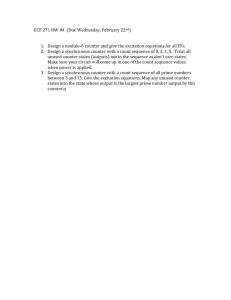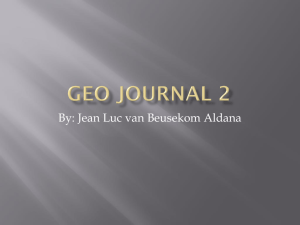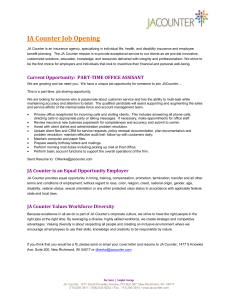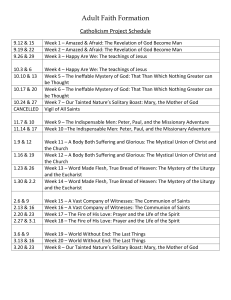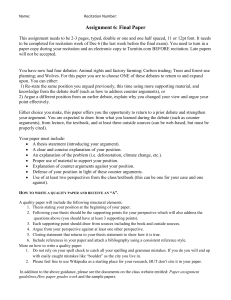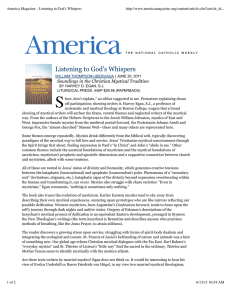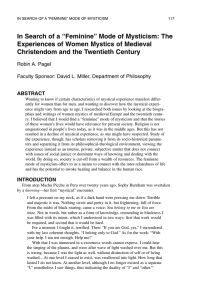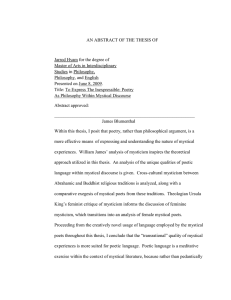Challenges to religious experience
advertisement
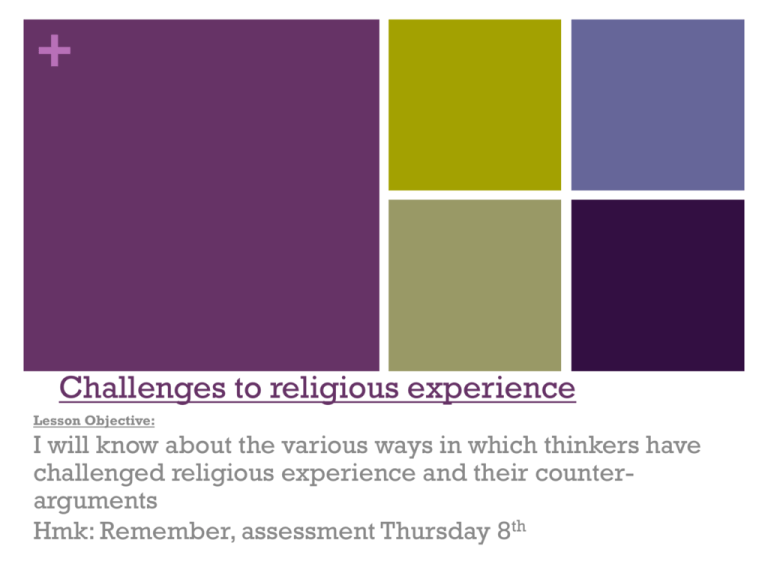
+ Challenges to religious experience Lesson Objective: I will know about the various ways in which thinkers have challenged religious experience and their counterarguments Hmk: Remember, assessment Thursday 8th + 1. Mystical experience 2. Numinous Experience 3. William James’ criteria for mystical experiences 4. James’ conclusions 5. Pragmatism 6. The Principle of credulity 7. The Principle of testimony 8. Edwin Starbuck 9. Richard Dawkins G. Found that nonreligious adolescents appear to go through stages of anxiety and depression before finding ‘happy relief’ in a conversion experience. H. Believes that faith “means blind trust, in the absence of evidence, even in the teeth of evidence.” A. On observing the effects of religious experience, we have to conclude that there is truth to be found in religion B. We must accept what appears to be the case unless we have clear evidence of the contrary. Be credulous. C. Used to describe experience of direct contact or oneness with God or ultimate reality E. Unless we have positive evidence that someone is misremembering, or untrustworthy, we should believe the testimony of the experience. I. Religious experiences are psychological phenomena which occur in the brain, but these experiences may also have a supernatural element to it as well. D. Ineffable, Noetic, Transient and Passive. F. Used to describe experiences of aweinspiring terror in the presence of God + http://www.teachit.co.uk/custom_content/timer/ti mer.html Speed Date – Four Challenges: pg 44-45 Challenge 1: Psychological Note down the arguments of FEUERBACH and FREUD Note the counter-argument from JUNG and JAMES Challenge 2: Physiological Note down what some SCIENTISTS have argued. What is the counter argument? Challenge 3: Interpretation. Note down the challenge and the counter argument. Explain how a pluralistic interpretation would be helpful Challenge 4: Is it logically possible? Note down what KANT argues. Note the counter argument from ALSTON and BROAD. + Speed teach On your ‘speed teach’ activity you must give and receive information The purpose of this exercise is for sharing knowledge. Make sure that your partner gives you the vital information that you need. Write it down. At the end we will evaluate how the sessions went. + Evaluation web Produce an evaluation web, summarising all of the arguments looked at in today’s lesson, with their counter arguments. See if you can get it all on one page. Keep it balanced – You could use your reading of the chapter from Bannister to help. P.R.E. Boxing + THE RULES: If there is a God there are likely to be experiences of him. There are religious experiences, therefore there is a God. Anybody who wishes to speak must put up their hand. When a person is speaking, everyone else listens. Only one person speaks at a time. Everyone should try to speak at least once during the session. The person speaking chooses the next person to speak from another side (who has their hand up). If there is more than one person who wishes to speak, you should pick the person who has said the least so far (NAME) A new speaker first has to offer a critical comment and EVALUATE what the previous person has said e.g. I agree because…., I think that is wrong because…., I disagree about this aspect…. The speaker must then say something substantial to drive the discussion forwards (BUILD) NAME EVALUATE BUILD + Statements 1. The very fact that there are many different religions in the world proves that religious experiences are not authentic. 2. Religious experience is emotional and therefore is not valid. 3. If there is a God there are likely to be experiences of him. There are religious experiences, therefore there is a God. Questions for discussion Is God really man written in large letters? What reasons might people have for inventing the idea of God? How might a believer respond to this suggestion? + What you need to know… What is a religious experience? What is a mystical experience? James’ criteria for mystical experience to explain different types: ineffable, noetic, transient, passive. Otto and Numinious experience. Visions and Voices – some examples e.g. Augustine, Paul, Muhammad, Teresa of Avila. Conversion as evidence for God? Nicky Cruz. Psychological views to counter, e.g. Edwin Starbuck. Swinburne – Principle of credulity and the principle of Testimony. Challenges to Religious Experience – Psychological, physiological, difficulties of interpretation, it is logically impossible to experience God. Remember, you need to be evaluating throughout your answer.
